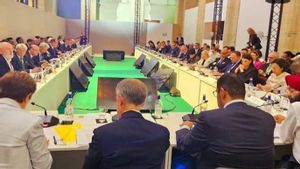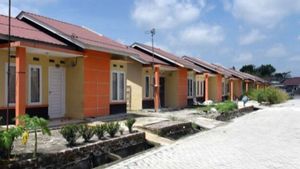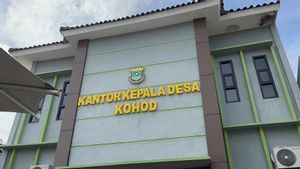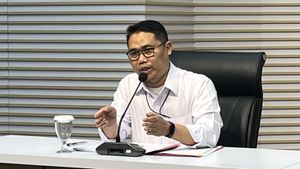JAKARTA - Public Policy Observer Trubus Rahadiansyah questioned whether the construction of the Raffi Ahmad Beach Club on Krakal Beach, Yogyakarta has gone through an Analysis Study on Environmental Impact (AMDAL). This is related to the WHI protest which states that there is the potential to damage the environment to culture or local wisdom of the surrounding community.
"Has AMDAL studied the construction of the Beach Club, starting from the analysis of environmental impacts. There are two environments, the geological physical environment then there is a human physical environment, the community. So there needs to be an analysis of the social impact first," Trubus said in his statement, Monday, January 1.
According to him, before carrying out the construction, RANS should coordinate with the Ministry of Environment (KLH), even though the local government has the authority to grant permits.
"Even though there is also authority from the regional government because it is regional autonomy, so these agencies have the authority, but the decision remains with the Ministry of Environment. Even if the regent agrees, if the president doesn't agree, it must be canceled, because he must pay attention to aspects of social impact in the future," he said.
Moreover, according to him, if the land is indeed included in the Sultan Ground area, then it must ask Sri Sultan for permission.
"Then the third, if the land is Sultan Ground, then Sultan Ground must of course have permission from the Sultan, whether to allow it or not," he continued.
Meanwhile, related to a study from Wahana Lingkungan Indonesia (WALHI), it can be used as an initial consideration, whether the construction of the beach club damages the environment or not.
"But there is also something to think about, what about the building, the impact is on the socio-culturality there. So that's what has not been studied, whether it will have an impact on the socio-culturality of the people there, for example, damaging the local wisdom that is there for example. There must be a study first," said Trubus.
"We can accept Walhi's study as an initial consideration to present data that must be researched, but from the physical environment the solution is more about how then the development pays attention to the landscape aspect of what it is called the landscape there," he continued.
So according to him, related to the construction of the beach club, there must indeed be a comprehensive study involving the role of the central government.
"Then it must also involve not only the government structure of the Gunung Kidul area, but also pay attention to how the central government, in this case, plays a role there," he added.
In addition, according to him, from a budget perspective to the source of the money used must also be known, so that criminal acts do not occur, such as money laundering (TPPU).
"Because it concerns investment and it must also be known where the source money came from, it's a rank corporation, it must be known not to let it be an element of money laundering and all kinds of things. Funding must be transparent in the budget, later through a study," he said.
In addition, Trubus said that in conducting studies on the impact of the construction of the beach club, it must also involve community participation and environmental activists.
Previously, WALHI highlighted the potential environmental damage related to the plan to build a beach club of PT Agung Rans Berhaja Indonesia (ARBI) by Raffi Ahmad and Arbi Leo.
Head of WALHI Campaign Division Elki Setiyo Hadi stated that the development could exacerbate drought in the Kapanewon Tanjungsari area.
"The construction of the resort, which will begin to be built in 2024 and will be completed in 2025, will further worsen the drought in Kapanewon Tanjungsari," said Elki.
The Raffi Ahmad Beach Club project on Krakal Beach is included in the East Gunung Sewu Natural Karst Bentangan Area (KBAK), which is a geological protected area.
SEE ALSO:
WALHI also reminded about the potential impact of beach club development on the capacity and carrying capacity of water in the Tanjungsari area, as well as the risk of flooding and landslides.
"With the vast construction of Raffi Ahmad's beach club, it is possible that it will damage the area of karst rocks in the vicinity," he said.
However, Raffi Ahmad still has not provided a definite answer regarding the criticism from WALHI.
"Yesterday there was also the regent. Later, yes, this must go first," said Raffi Ahmad.
He admitted that he only found out about WALHI's criticism. "Later, we will ask again what it looks like. I also just found out from my friends. Not yet, not yet," he said.
The English, Chinese, Japanese, Arabic, and French versions are automatically generated by the AI. So there may still be inaccuracies in translating, please always see Indonesian as our main language. (system supported by DigitalSiber.id)
















